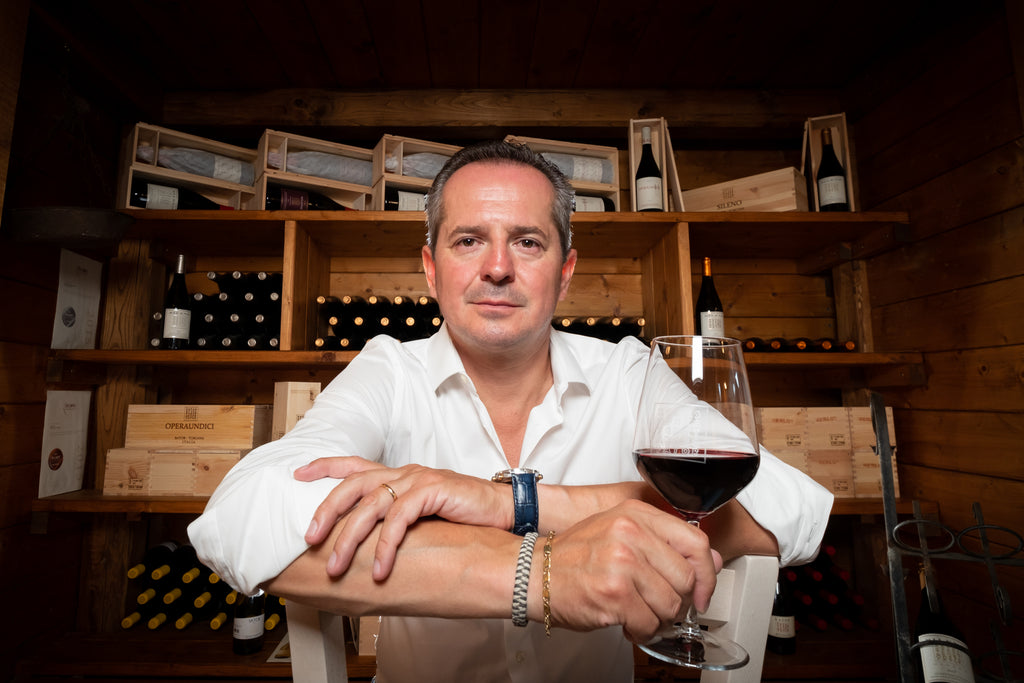Our tasting impressions
The aromatics here are a touch more roasty than the 2016. Overall, the 2018 is richer and fuller but with the same tasty red fruit flavors that seem a bit sweeter. It is certainly more primary and needs plenty of air (or cellar time) to fill out and resolve. While bigger, it is no less balanced and will evolve into a first-class Ciliegiolo.
About this wine
Ciliegiolo from individual plots are harvested manually in two stages. The first is for rosé. Ten days later – the riper grapes are harvested for Sileno. The grapes are vinified and refined separately. The winemaking process varies according to the climate of that year. Fermentation is with indigenous yeasts at a controlled temperature. Half the wine ages in oak barrels for 6-8 months and the other half in cement for the same time. It rests in the bottle for 6 months before release.
About the grape
Ciliegiolo (little cherry in Italian) is having a moment. Genetically related to Sangiovese, it is featured in Central and Northwestern Italy. It is prone to mildew. It tends to produce wines evocative of its name - gentle in structure and tannins, nicely fruited and very juicy.
Gianni's perspective on the vintage
2018 Winter temperatures were typical, with only a short period below zero. Rain was heavy in January and February. Buds started sprouting at the beginning of April. Spring was a mix of extreme heat , humidity and rain, which led to flowering at the beginning of June. More rain came at the end of July, which helped cool the hot summer and allowed the grapes to add ripeness and sugar. The fall brought ideal conditions.
The harvest started at the end of August for Merlot and Ciliegiolo, followed by the Vermentino and the Fiano grapes, ending with the Sangiovese grapes at the beginning of October.
Suggested Glassware: Grassl Liberté
Gianni Moscardini's azienda in the village of Pomaia is in the northern Tuscan Maremma. This is the west coast, near Pisa. The Moscardini family has owned this land for 2 centuries but Gianni was the first to plant vines in its varied soils in 2008.
Production is 50,000 bottles annually from 13ha at an elevation of about 180m. The vines are trained in the Guyot system. They make DOC Montescudaio from grapes like Sangiovese, Cabernet Franc and Fiano. All of the varieties are planted in at least 2 plots - each with a different soil composition - including some volcanic.
Gianni is an agronimist and his wife Meri is a plant biologist at the National Council of Research in Pisa. Together, they have deeply studied the soils and terroir of their land to determine the best approach to plantings. Their credo is to produce wines that fit seamlessly with the land in which they are planted, which is why they vinify the grapes from each plot separately prior to blending.
VDLT is the only US source of these uncommon and beautiful wines.
